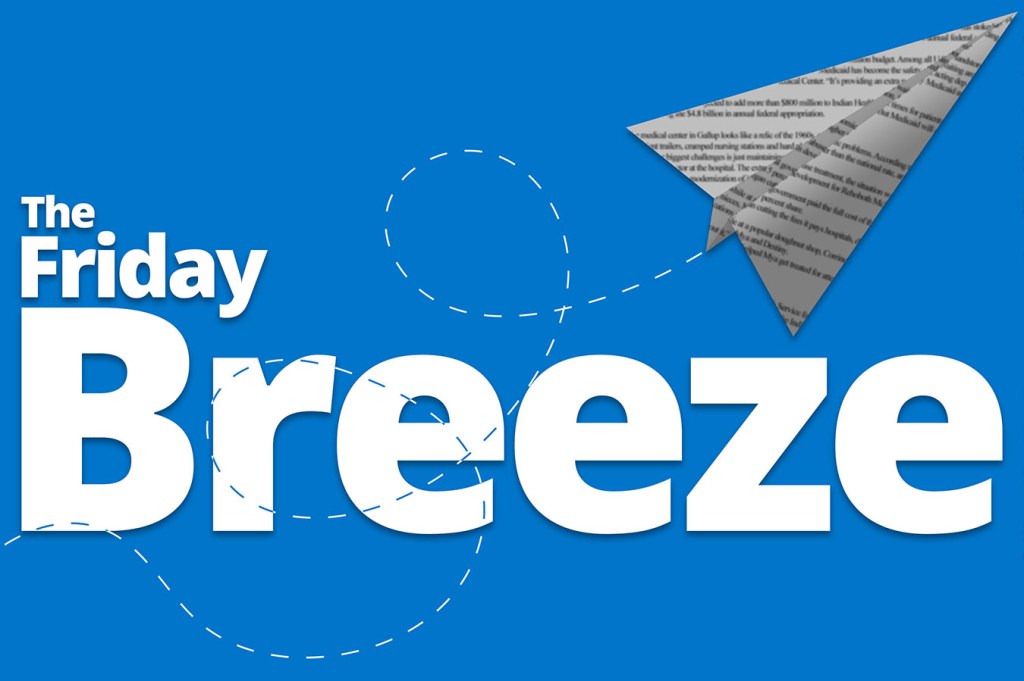The next time I even hint that we’re drifting into a slow news period, feel free to remind me not to jinx things: This week was bursting with industry moves, health law attacks, midterm strategizing, and, oh yeah — an indictment.
A quick programming note before we dive into all that: The Breeze is going on hiatus as I breeze out of town for a bit. But I’ll be back Aug. 31, just as we really start heading into midterm season, so look for me again then.
Now for the news you may have missed:
This week’s swipe at the health law focused on accountable care organizations (shorthand explanation: a program that took a carrot-and-stick approach to getting hospitals, doctors and other providers to coordinate, with the end result of higher-quality, more efficient care). They were supposed to save the government billions of dollars, but data show they’ve failed to measure up to the promise, so the program is being overhauled.
—
Rep. Chris Collins (R-N.Y.) was charged with fraud in connection to alleged insider trading after an investigation into his ties with Innate Immunotherapeutics, an Australian biotech firm.
Politico: GOP Rep. Chris Collins Charged With Securities Fraud
If that all sounded vaguely familiar, it’s because back when then-HHS secretary nominee Tom Price was being vetted for any possible ethics violations, his connection to both Innate and Collins was put in the spotlight. And just a small plug: KHN did deep reporting on this, and you can read the stories here.
—
Medicare Advantage got some leverage to curb drug costs this week by way of “step therapy” (or, as it’s known to critics, “fail first”). Essentially, the private plans will be able to require that patients try cheaper versions of drugs before moving on to more expensive ones. To be clear: This is a pretty distant cry from campaign promises to let Medicare negotiate drug prices, and there’s no guarantee patients will actually see any savings from this move.
Stat: Private Medicare Plans Will Be Able to Use a New Tool to Lower Drug Costs
Would a Netflix model work for drugs? That’s what Louisiana wants to find out. Under the proposal, the state would pay a subscription-type fee to be able to cover all of its Medicaid patients who need hepatitis C treatment. Beyond the click-baity notion, though, experts warn that because drug prices are such a moving target (with some costs coming down quickly) the state may not actually save money.
Stat: Louisiana Explores a ‘Netflix’ Subscription Model for Buying Hepatitis C Drugs
—
For even some moderate Democrats, “Medicare-for-all” is a pipe dream involving all sorts of politically unpopular complications like trillions of dollars in government spending (the current point of contention). But on the trail, it’s a rallying cry. Gubernatorial candidates, especially, are embracing it, suggesting their states become early testing grounds for universal coverage plans that have been more rhetoric than action so far.
The Hill: Ocasio-Cortez: ‘Medicare for All’ Is ‘Not a Pipe Dream’
Apart from “Medicare-for-all,” Democrats could have a winning health issue with drug prices. The problem? They can’t really coalesce behind a plan, all these “concessions” as of late are making it harder to attack the administration, and, uh, there may be a lack of interest in cutting off campaign cash this close to the elections.
Stat: Drug Prices Could Be a Winning Issue for Democrats — If Only They Had a Plan
—
The idea to penalize legal immigrants’ use of Medicaid has been rumbling around for a bit now, but it picked up some speed in recent days. Though it could be a winning issue for Republicans on the trail, the argument isn’t really backed up by the data. It turns out that legal immigrants are likely subsidizing native-born Americans’ health care.
The New York Times: Plan to Punish Immigrants for Using Welfare Could Boost G.O.P. Candidates
The Hill: Study: Immigrants Have Lower Health-Care Costs Than People Born in US
—
Buckle up, there were industry moves galore this week. I’ll try to keep it quick: Billionaire Carl Icahn came out against Cigna’s attempts to acquire Express Scripts, saying it is (in my favorite vocab usage of the week) a “$60 billion folly”; Rite Aid called off its (unpopular) merger with Albertsons; the American Medical Association came out against CVS’ deal with Aetna; and GM signed an exclusive deal with a health system to provide care for its workers.
The Wall Street Journal: Carl Icahn Publicly Opposes $54 Billion Cigna-Express Scripts Deal
The Wall Street Journal: Rite Aid, Albertsons Call Off Merger Amid Investor Opposition
Reuters: American Medical Association Opposes Merger of CVS and Aetna
The Wall Street Journal: GM Cuts Different Type of Health-Care Deal
—
If that wasn’t enough news for you, here’s my miscellaneous file: A billionaire and his PTSD clinics have become entangled in the fierce debate over VA privatization; a look at how Zika babies are faring as they grow up is sobering in the breadth of damage the virus has done; an app can warn those recovering from addiction when they’re in neighborhoods or with acquaintances that could trigger a relapse; and a medical examiner is writing to doctors personally each time one of their patients dies from an overdose — and it’s working.
ProPublica: Steve Cohen Is Spending Millions to Help Veterans. Why Are People Angry?
Stat: Can An App’s Warnings to Avoid Triggers Prevent Opioid Addiction Relapses?
—
And don’t miss one of my favorite long reads of the week (which I got sucked into while on deadline, thank you very much) about an Appalachian odyssey and a hunt for ALS genes.
Stat: Appalachian Odyssey: Hunting for ALS Genes Along a Sprawling Family Tree
Have a great weekend, all!







